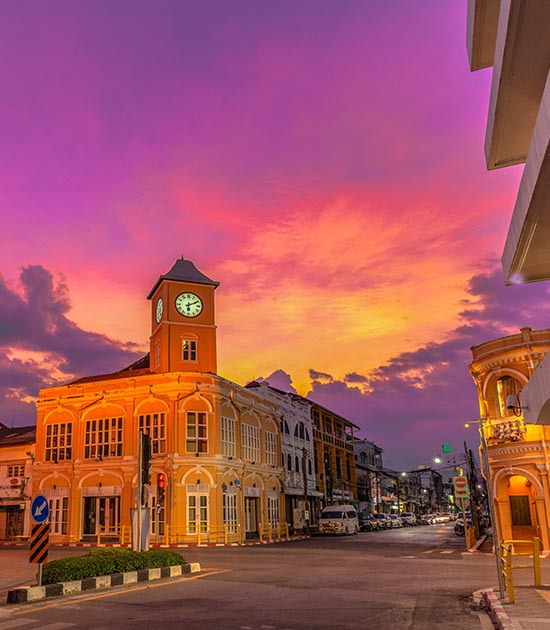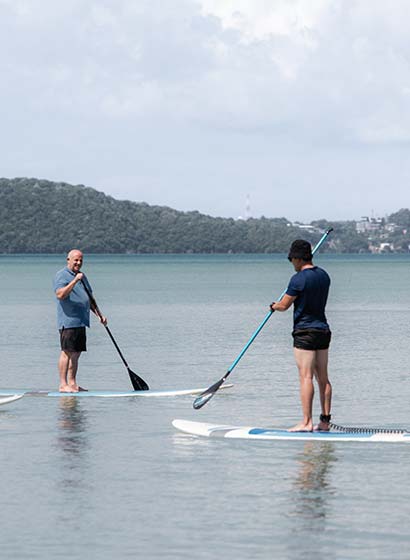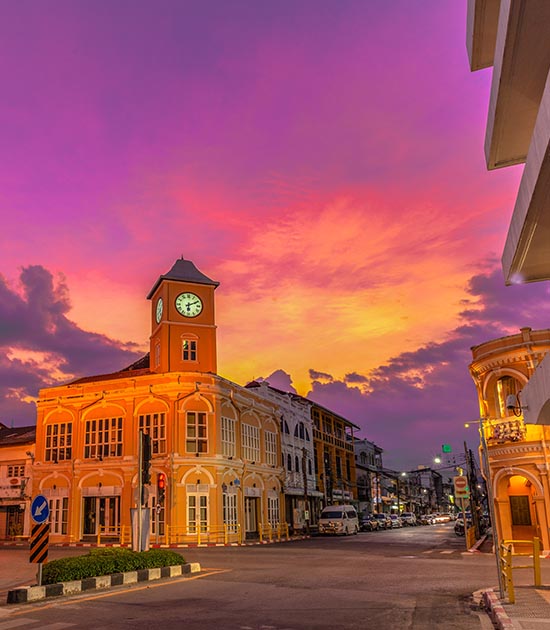Experience Phuket
Make your stay in Phuket Memorable
Journey into the heart and soul of Phuket, Thailand
Phuket is a tropical paradise waiting to be explored, offering a perfect blend of adventure, culture, and relaxation. From the pristine beaches and crystal-clear waters to the vibrant markets and historic Old Town, there’s something for every traveler. Embark on an island-hopping tour to the famous Phi Phi Islands, experience the thrill of water sports, or take a scenic hike to Big Buddha for breathtaking panoramic views.
Immerse yourself in authentic Thai culture with a visit to local temples, a traditional cooking class, or an evening at a lively night market. Whether you’re seeking adventure, wellness, or tranquility, Phuket offers unforgettable experiences at every turn.


Make your Phuket trip memorable
Diving & Watersports
Explore vibrant coral reefs and marine life with world-class diving, snorkeling, jet skiing, and paddleboarding in Phuket’s crystal-clear waters.
Partying & Nightlife
Experience Phuket’s legendary nightlife, from bustling beach clubs and rooftop bars to the vibrant party scene on Bangla Road.
Elephant Trekking
Get up close with Thailand’s gentle giants by visiting an ethical elephant sanctuary for a once-in-a-lifetime experience.
Adventure Trips
Discover Phuket’s hidden gems with scenic jungle treks, waterfall hikes, and thrilling ATV adventures.
Golf
Tee off at world-class golf courses, surrounded by breathtaking landscapes and lush tropical greenery.
Culinary Tours
Indulge in authentic Thai flavors with guided food tours, cooking classes, and visits to bustling local markets.
Shopping
Browse everything from luxury boutiques to vibrant night markets, offering handcrafted souvenirs, designer brands, and local treasures.
Cultural Tours
Immerse yourself in Phuket’s rich heritage, exploring ancient temples, historic Old Town, and traditional festivals.








